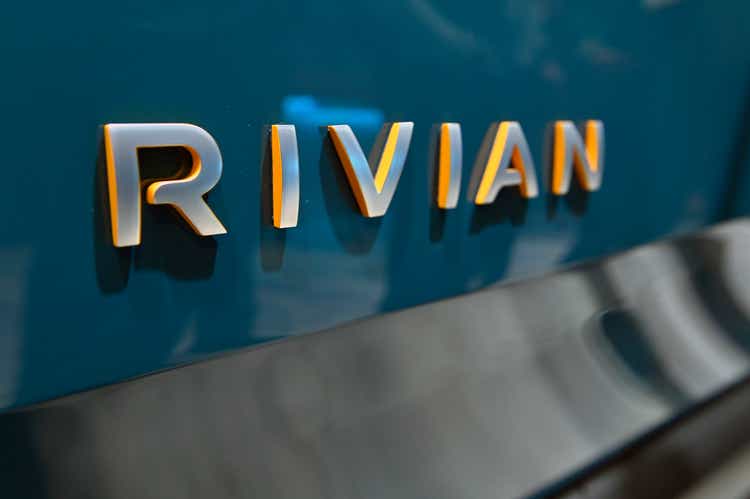
David Becker/Getty Images News
Rivian Automotive (NASDAQ:RIVN) pared its post-earnings loss in Wednesday afternoon trading. After being down 10% in the premarket session, Rivian (RIVN) was 2.2% lower at 12:58 p.m. While Rivian (RIVN) continues to show a loss on every vehicle that it delivers, management continues to highlight that it is on a slow track to profitability and positive cash flow.
Needham reiterated its Buy rating on Rivian (RIVN) following the report. Analyst Chris Pierce and his team continue to see Rivian (RIVN) as a long-term winner in the ICE to EV transition, as the company leverages high R1 owner satisfaction and the Amazon (AMZN) delivery van partnership on the demand side. The recent strategic partnership and planned investments from Volkswagen (OTCPK:VLKAF), continued manufacturing efficiencies, and supplier leverage are all seen as positive factors as well.
Evercore ISI analyst Chris McNally was positive on the liquidity situation for Rivian (RIVN). He highlighted that after the joint venture with Volkswagen (OTCPK:VWAGY), total liquidity will stand at $9.2 billion. That tally does not include the remaining $4 billion in funding which will come with the joint venture definitive agreement. McNally and his team think that the liquidity position for Rivian (RIVN) will be enough to last through at least 2027 or close to when the company expects to free cash flow positive.
Wedbush Securities backed its Outperform rating on Rivian (RIVN) and a price target of $20. “While profitability remains a key focus of the Street, it now feels that the tires are hitting the road for the automaker with a clear vision ahead and will continue to chip away at its checklist to continue building back trust,” updated analyst Dan Ives.
UBS analyst Joseph Spak thinks Rivian Automotive (RIVN) is on the right path, but lowered its price target to $16 to account for the delivery cadence and plant downtime in 2025.
On the earnings call (transcript), Rivian (RIVN) management said it is looking forward to starting to talks with other electric delivery van customers beyond Amazon (AMZN). CEO RJ Scaringe said the company has been running pilots as it eyes a more significant EDV ramp-up in 2025.
“And this focus on pilots is really reflective of the nature of this business, where these are large decisions around large numbers of vehicles for a lot of these bigger fleets. And it’s appropriate that we build effective working models for how the vehicles are serviced, what digital support the vehicles have, what infrastructure changes are necessary for each respective fleet.”
Ford Motor (F) is the biggest seller of electric vans in the U.S. Meanwhile, Tesla (TSLA) has dropped enough hints about making electric vans in the past that some EV watchers think it could be part of the robotaxi concept.
